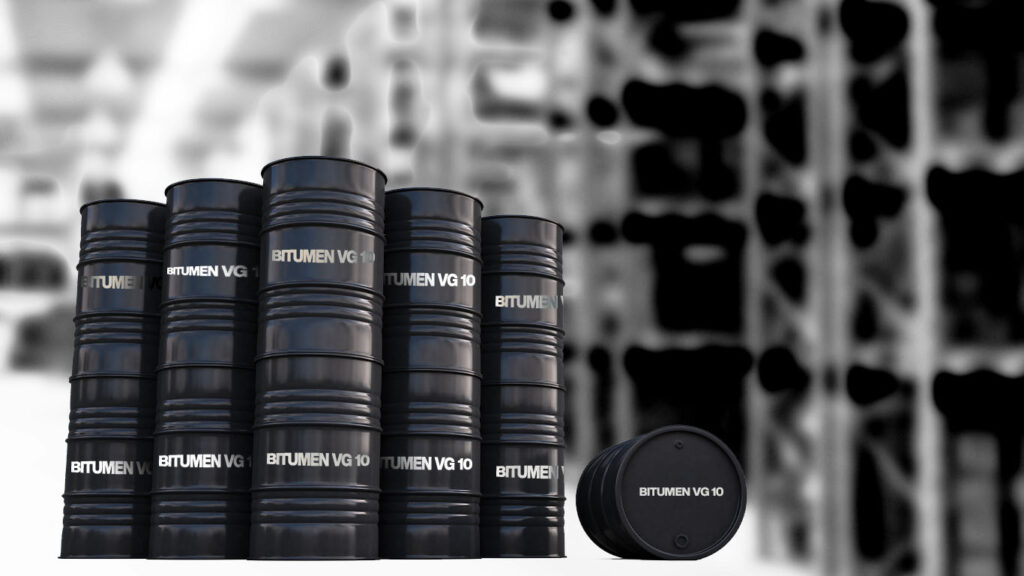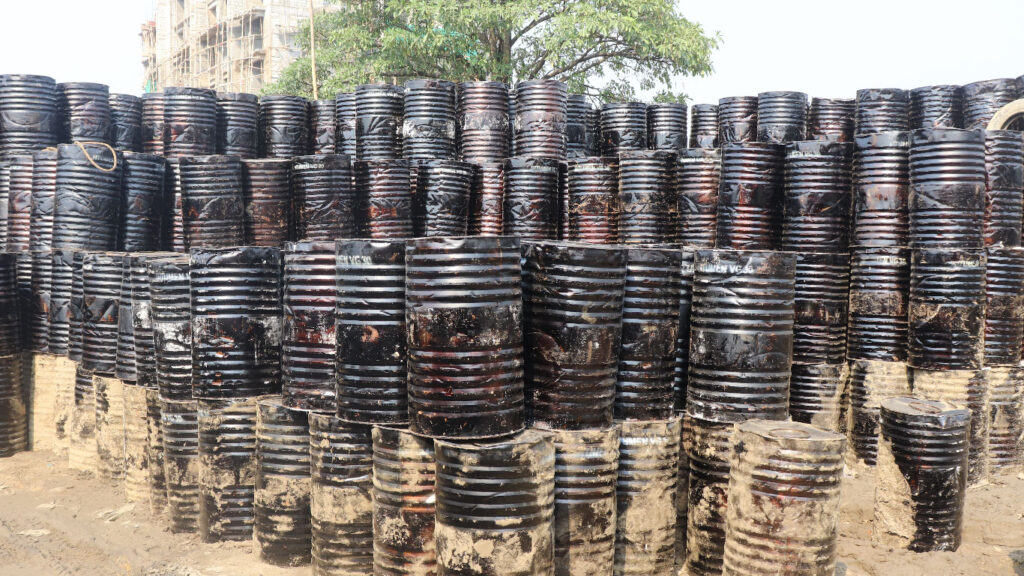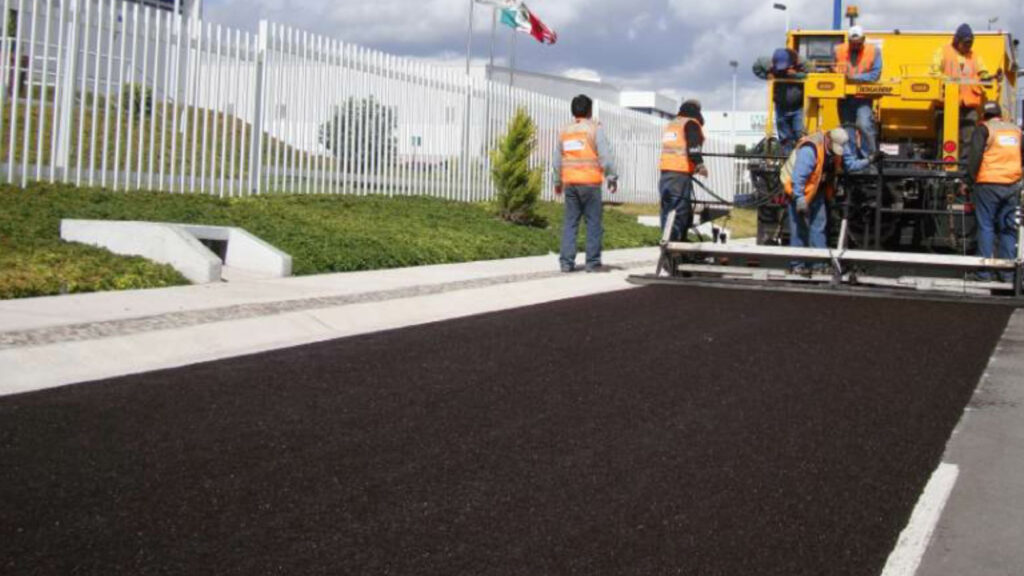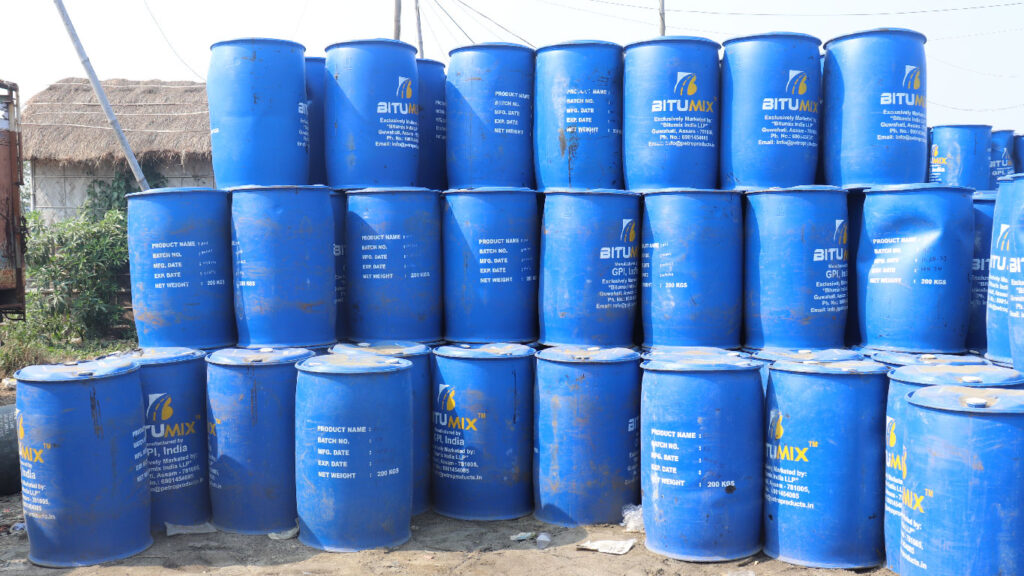Are you curious about VG10 bitumen and its properties? Look no further! In this article, we will delve into the composition, physical and chemical properties of VG10 bitumen.
You’ll also discover how this versatile material is used in road construction, as well as maintenance and repair techniques for VG10 bitumen surfaces.
Get ready to explore everything you need to know about VG10 bitumen – from its characteristics to its practical applications. Let’s dive in!
Key Takeaways
- VG10 bitumen is composed of a unique blend of bitumen and special additives, which enhance its performance properties.
- It has a relatively low viscosity, medium penetration value, and high softening point, making it suitable for road paving applications.
- VG10 bitumen offers excellent resistance to oxidation, ensuring durability and long-lasting performance.
- It serves as a cost-effective binder in road construction, providing enhanced durability and resistance to cracking and deformation.
Composition of VG10 Bitumen
You’ll be interested to know that VG10 bitumen is composed of a unique blend of bitumen and special additives. The manufacturing process of bitumen involves the extraction of crude oil, which undergoes distillation to separate various components.
Bitumen is obtained from the residue left after separating lighter fractions like gasoline and diesel. In the case of VG10 bitumen, specific additives are mixed with the base bitumen to enhance its performance properties. These additives improve its resistance to aging, increase its elasticity, and enhance its adhesion capabilities.
However, it’s important to consider the environmental impact of using VG10 bitumen. While it provides superior performance for road construction and maintenance, the extraction and production processes can result in carbon emissions and other environmental concerns.
Therefore, it is crucial to implement sustainable practices in the production and usage of VG10 bitumen to minimize its ecological footprint.
Physical Properties of VG10 Bitumen
The physical properties of VG10 bitumen include its viscosity, penetration value, and softening point. These properties play a crucial role in determining the performance and functionality of the bitumen in various applications.
Here are some key points to understand:
- Viscosity: VG10 bitumen has a relatively low viscosity, which means it flows easily at higher temperatures. This property is important for ensuring proper mixing and application of the bitumen.
- Penetration Value: The penetration value indicates the hardness or consistency of the bitumen. VG10 has a medium penetration value, making it suitable for road paving applications where moderate hardness is required.
- Softening Point: The softening point represents the temperature at which the bitumen becomes soft enough to deform under load. In the case of VG10, it has a high softening point, indicating good resistance to deformation even at high temperatures.
Understanding these physical properties is essential when selecting VG10 bitumen for specific projects as they have an impact on its thermal conductivity and aging properties.
Chemical Properties of VG10 Bitumen
To understand the chemical properties of VG10 bitumen, it’s important to consider its resistance to oxidation and its compatibility with other materials.
VG10 bitumen is known for its excellent resistance to oxidation, which means it can withstand chemical reactions with oxygen without deteriorating over time. This makes it a highly durable and long-lasting material for various applications.
Moreover, VG10 bitumen exhibits good compatibility with other materials commonly used in construction, such as aggregates and binders. This ensures that the final product will have a cohesive structure and perform well under different environmental conditions.
In terms of environmental impact, VG10 bitumen is considered relatively safe due to its low toxicity levels and minimal emission of volatile organic compounds (VOCs). These factors make VG10 bitumen an ideal choice for sustainable construction projects that prioritize environmental responsibility.
Uses of VG10 Bitumen in Road Construction
One of the main applications of VG10 bitumen is in road construction. It serves as a binder to hold aggregates together and create a smooth and durable surface. Using VG10 bitumen in road construction offers several advantages.
- Enhanced durability: VG10 bitumen has excellent adhesive properties, ensuring that the aggregates remain bound together even under heavy traffic loads.
- Weather resistance: VG10 bitumen can withstand extreme temperatures, preventing cracking and deformation of the road surface.
- Cost-effectiveness: Compared to other binders, VG10 bitumen is relatively inexpensive, making it an economical choice for road construction.
However, there are also some disadvantages associated with using VG10 bitumen.
- Environmental impact: The production of VG10 bitumen involves high energy consumption and releases greenhouse gases into the atmosphere.
- Limited availability: The supply of high-quality VG10 bitumen may be limited in certain regions.
As alternatives to VG10 bitumen, road constructors can consider using materials like asphalt emulsion or polymer-modified asphalt. These materials offer similar performance characteristics while addressing some of the drawbacks associated with VG10 bitumen.
Maintenance and Repair of VG10 Bitumen Surfaces
For maintenance and repair of VG10 bitumen surfaces, it’s important to regularly inspect for cracks and potholes. These issues can lead to further degradation and increase the cost of repairs if not addressed promptly.
Best practices for maintaining VG10 bitumen surfaces include conducting regular visual inspections, especially after extreme weather conditions, to identify any signs of damage. Once cracks or potholes are detected, they should be repaired immediately using appropriate techniques such as crack sealing or patching with compatible materials. Ignoring these damages can result in water infiltration and further deterioration of the pavement structure.
Regular sweeping and cleaning of the surface also helps prevent debris buildup that can contribute to accelerated wear and tear. By following these practices, you can ensure the longevity and performance of your VG10 bitumen surfaces while minimizing repair costs.
Conclusion
In summary, VG10 bitumen stands as a versatile construction material. Its composition, physical properties, and chemical resistance make it a robust choice, particularly for road construction. However, its environmental impact is a crucial consideration. Regular maintenance is key to its longevity. For alternative options, asphalt emulsion or polymer-modified asphalt can address certain drawbacks. VG10 bitumen’s applications extend beyond roads, offering advantages in various construction projects. Its cost-effectiveness and durability make it a dependable choice, with a longer expected lifespan compared to alternative surfaces. Prioritizing sustainable practices in its production and usage is essential for minimizing its ecological footprint.
Frequently Asked Questions
Can VG10 Bitumen Be Used for Other Purposes Besides Road Construction?
Yes, VG10 bitumen can be used for other purposes besides road construction. It offers several advantages in non-road construction projects as well, such as waterproofing, insulation, and corrosion protection.
How Does VG10 Bitumen Compare to Other Types of Bitumen in Terms of Cost?
When considering the cost of VG10 bitumen compared to other types, it is essential to analyze the production and market aspects. By examining these factors, you can gain valuable insights into its economic viability.
Are There Any Environmental Concerns Associated With the Use of VG10 Bitumen?
Yes, there are environmental concerns associated with the use of VG10 bitumen. It is important to consider the environmental impact and implement sustainability measures when using this type of bitumen.
Can VG10 Bitumen Be Used in Extreme Weather Conditions?
Yes, you can use VG10 bitumen in extreme weather conditions. It performs well in both extreme cold and extreme heat, making it suitable for a wide range of climates and applications.
What Is the Expected Lifespan of VG10 Bitumen Surfaces Compared to Other Types of Surfaces?
The expected lifespan of VG10 bitumen surfaces is longer compared to other types of surfaces like asphalt and concrete. This is due to the durability and strength of VG10 bitumen, making it a reliable choice for long-lasting road and pavement applications.





